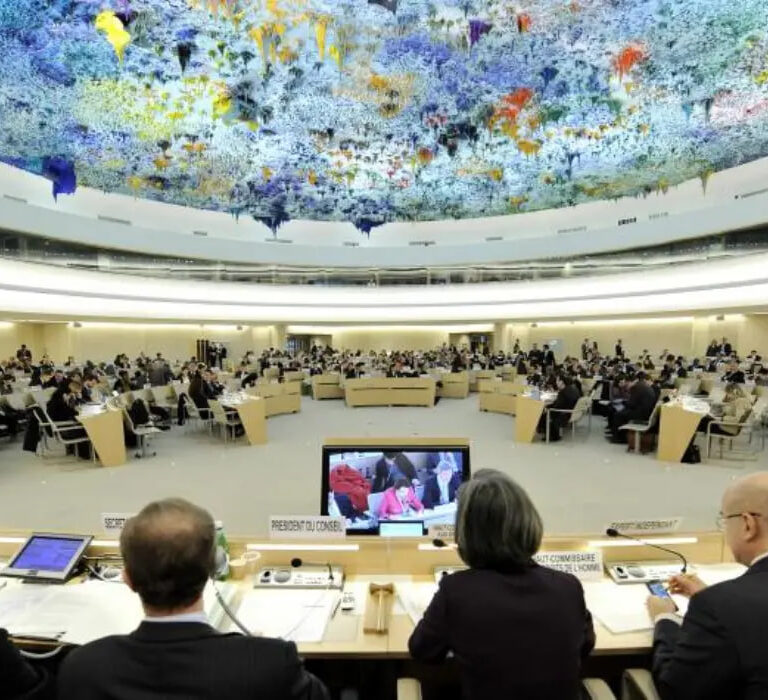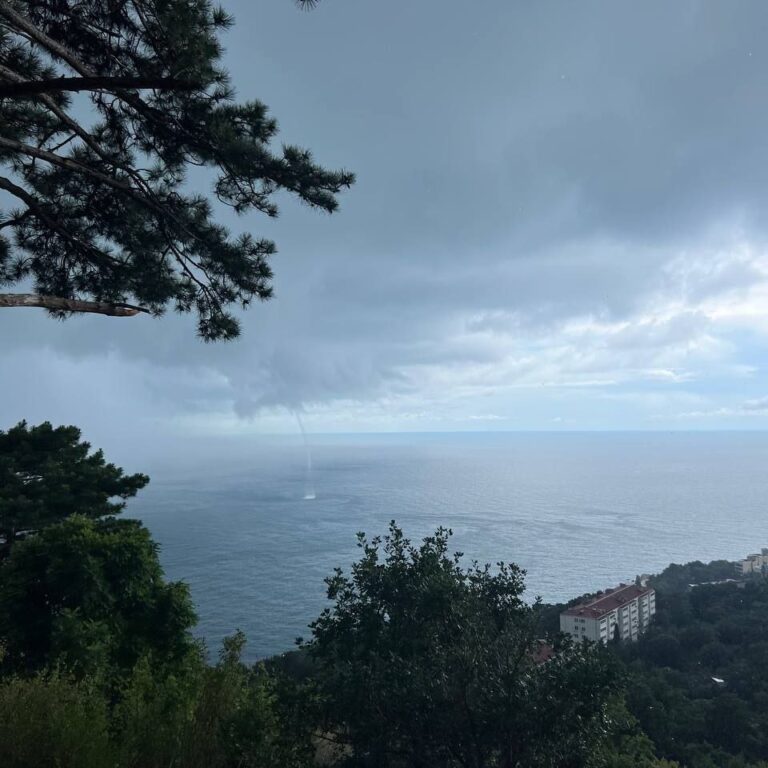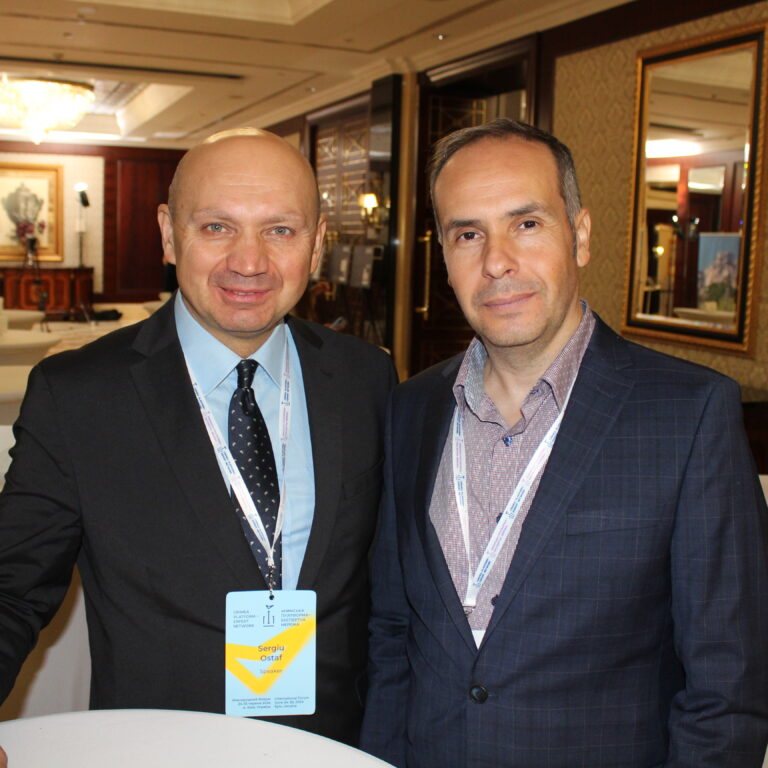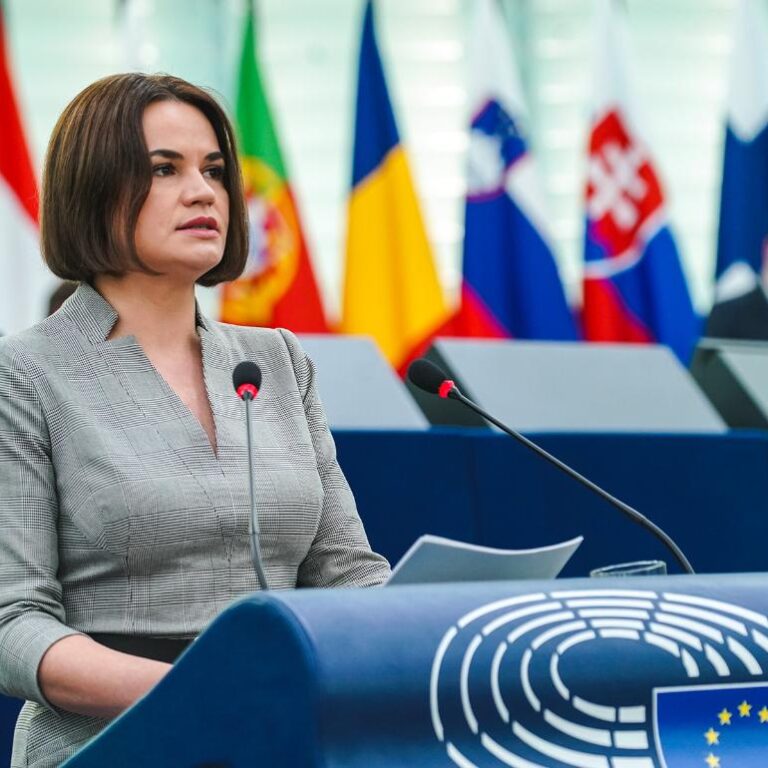Humanity has more than once witnessed, how states colluded with criminal structures or with individual criminals in order to achieve their goals. However, the 21st century has dramatically aggravated this problem, as a result of which the geopolitical confrontation has acquired an openly criminal character. States began to resort to state terrorism and integrate terrorist groups into their security forces. The disappearing boundary between the state and the criminal world is a worrying trend that requires strong opposition and global condemnation.
And if issues of state terrorism have been the object of research for many years, then the official “employment” of international criminals by the state, a striking example of which are the events in the occupied Crimea, seems to be a somewhat new practice and requires, in our opinion, a proper theoretical description and, if possible, qualifications. The corresponding study was conducted by ARC expert, associate professor Andrii Chvaliuk, and it recently received appropriate approval in the authoritative expert publication “Law of Ukraine”.
A striking example of attracting criminals to carry out state tasks was privateering. Further, more modern mechanisms of state-criminal partnership had the nature of either tacit consent to commit crimes in hostile territory or the secret provision of foreign criminal structures with finances (weapons, information, etc.). They occurred with the aim of weakening the enemy state, both in officially declared wars and during “cold” competition for a leading place in the geopolitical arena.
The occupation of the Crimea, Donetsk and Luhansk, the subsequent full-scale invasion of Ukraine by Russia, and the crimes committed by its military and mercenaries against civilians, raised the question of codifying such terms as “criminal state” and “terrorist state” in international law. After all, a properly formulated terminological basis will allow once and for all to distinguish these specific subjects of international law from ordinary “mafia states”. Although we assume that under certain conditions, a state can simultaneously be both mafia and terrorist.
Governments and spy agencies still often recruit criminals to smuggle weapons to allied rebels in other countries or even to kill enemies abroad. But unlike conventional states, mafia states do not simply rely on criminal groups from time to time to achieve certain foreign policy goals. In a mafia state, senior members of the government effectively become integral participants, if not leaders, of criminal enterprises, and protecting and promoting the business of these enterprises becomes official priorities.
According to N. Moises, “mafia states are not subject to simple classification, blurring the conceptual boundary between states and non-state actors. As a result, their behavior is difficult to predict, making them particularly dangerous players in the international environment”. The situation is somewhat different with state sponsors of terrorism. Initially, this status was granted in accordance with the official position of the US State Department. Subsequently, other states and international organizations began to recognize certain states as sponsors of terrorism.
States (jurisdictions) that do not implement or improperly implement the recommendations of international, intergovernmental organizations involved in the fight against legalization (laundering) of proceeds from crime, or the financing of terrorism or financing the proliferation of weapons of mass destruction, are deprived of international assistance and access until then until they admit their guilt in violating international conventions and begin to eliminate the consequences of their harmful activities. For example, Sudan has been under sanctions for 27 years, and Iran has been under them for 40 years in a row.
Increasing pressure on Iran, the United States decided to take an unprecedented step and in 2019 recognized the Iranian Islamic Revolutionary Guard Corps (IRGC) as a terrorist organization. For the first time in history, Washington has given this status to a state armed structure. Experts believe that such a decision will lead to a new understanding of the term “terrorism,” which, in our opinion, is already quite blurred.
The IRGC is the military branch of the executive branch of the Islamic Republic of Iran and, according to Article 150 of the country’s constitution, exists in parallel with its armed forces, performing duties “with an emphasis on fraternal cooperation and harmony between them”. That is, before receiving the status of a terrorist organization, the specified armed structure had a completely legal status in the system of national executive authorities.
The above gives every reason to assert that responsibility for the actions of the IRGC should be borne by the highest military-political leadership of Iran, from which the commander-in-chief of the corps received all orders. The fact that the Iranian authorities strongly deny accusations of providing support to terrorist organizations does not in any way impede the application of the norms of international responsibility. The recognition of the IRGC as a terrorist organization did not happen overnight. In 2012, Quds, a secret unit of the IRGC responsible for extraterritorial operations and for exporting the Iranian revolution by facilitating such terrorist operations as the Taliban, Hezbollah, Hamas, was added to its list of terrorist organizations by Canada. From which we can conclude that the process of collecting appropriate and reliable evidence confirming the connection of a state armed structure with terrorist organizations is a rather complex and long-term matter and is based on fruitful international cooperation in this area.
A separate obstacle to the recognition of such structures as the IRGC as terrorist organizations is, in particular, the national legislation of the states affected by its activities. In particular, the Criminal Code of Canada contains clauses excluding military units or parties to an armed conflict from the list of possible subjects of terrorist activity. Canadians whose family members died in a terrorist attack carried out by the IRGC do not consider this a valid reason and are demanding that their government change the law. But because the IRGC is part of Iran’s military and military service is compulsory, Canada’s Justice Minister David Lametti worries that “the criminal code will become too ‘blunt an instrument’ to combat the organization”.
“The problem is that over more than 40 years of the existence of the Islamic Republic, more than a hundred thousand people, mostly conscripts, served in the IRGC. A significant number of employees held administrative positions or were cooks. Is it really worth punishing them?” – Middle East politics specialist Thomas Juneau raises the question. From the position of human-centrism, everything is correct, but recent signals from many “hot spots” in the world show how far a chef can go if he heads a private military company.
On January 31, 2023, a statement by a group of experts from the organization was published on UN resources, calling for an immediate independent investigation into the gross violations of human rights and possible war crimes and crimes against humanity committed in Mali by the “Wagner” group since 2021. Experts have observed that the apparent increase in the transfer of traditional military functions to the so-called “Wagner” group in various military operations, including operations defined as counter-terrorism, is combined with a lack of transparency and ambiguity in the legal status of this private military company.
As it has now become known, Russian intelligence services used the “Wagner” group and similar structures as their proxy forces, that is, an unofficial part of the Russian armed forces, involving it in various armed conflicts around the world – from Libya, the Central African Republic, Mali, the Caucasus to Ukraine, trying to avoid responsibility for their actions. Despite the fact that Russia financed the “Wagner” group, at some point the Russian military command “lost control” and decided to make it part of it in order to fully integrate it. For this purpose, Russian defense minister Sergei Shoigu signed an order defining the procedure for organizing the official activities of volunteer organizations. The document provided for the signing of contracts by volunteer units with the Russia’s ministry of defense by July 1, 2023, “in order to provide volunteer units with the necessary legal status, create a unified approach to organizing comprehensive support and performing their tasks.” The result was the refusal of the head of “Wagner”, Yevgeny Prigozhin, to carry out the order and a short-term internal conflict in Russia, called the “Prigozhin’s Rebellion”.
The rebellion exposed some of the peculiarities of the relationship between the Russian state and “Wagner”. First, according to Putin, “Wagner” was “entirely financed from the Russian budget.” Secondly, in Russia, formally, “there are no and cannot be private military companies, since there is no such law.” It is “surprising” that in the nine years since the founding of the “Wagner” group, these “legal subtleties” “for some reason” have not bothered anyone in Russia. The “Wagner” group had bank accounts, and its leadership owned various properties in Russia and occupied Crimea through nominees. In particular, and described by our Association as actually a separate port and dock complex in Sevastopol, “very convenient for all sorts of discreet transhipment of various things and their delivery to the countries of the Middle East and Africa”.
In our opinion, the Russian leadership deliberately left a legal loophole in order to, if necessary, independently liquidate the “Wagner” group members after they had played their role or had completely discredited themselves. That’s what happened. Due to its involvement in the war in Ukraine, mass executions, rape, child abduction and physical abuse in the Central African Republic and Mali, the “Wagner” group was first designated as a transnational criminal organization and later as a terrorist organization. The leadership of the “Wagner” group came under sanctions, and the Ukrainian Prosecutor-General’s office, together with their American colleagues, began to cut off foreign sources of funding for “Wagner” group.
By all indications, the “Wagner” group “was time to disappear,” preferably along with all its members. But the organization grew to 50,000 people and had heavy weapons, armored vehicles, and air defense systems, which made it a serious fighting force capable of overthrowing the government that created it. And although the “Prigozhin’s Rebellion” failed, Putin’s public expressions in an attempt to humiliate the military significance of the “Wagner” group as an independent combat unit, as noted above, give rise to certain reflections. If Russia has always financed and used for its own interests the military organization originally known as “Wagner”, should the leadership of the state bear full responsibility, including international responsibility, for their actions? In our opinion, yes.
International criminal law specialist G. Bogush believes that the definition of the PACE resolution, according to which the ruling regime in Russia is recognized as terrorist, and “Wagner” as a terrorist organization, supposedly “does not entail legal consequences for Russia”. But this is a misconception.
“The key difference between state terrorism is that violence is committed by agents of the state,” which is why a specific composition of accomplices is formed, which consists in the special status of the perpetrators and organizers of an international terrorist act. As follows from Art. 8 bis of the Rome Statute of the International Criminal Court, for the commission of systematic terrorist acts, in addition to their direct perpetrators, the highest military-political leadership of the country, authorized to issue such criminal orders, must also bear responsibility.
So, as we have already noted in our other work, “we can confidently say that acts of terrorism already committed in Ukraine by representatives of the aggressor will be qualified by the International Criminal Court as war crimes or crimes against humanity”. And there is no difference whether at that time a contract was concluded between the person who committed the crime and the Russia’s ministry of defense or not. This will not affect your qualifications.
Ordinary members of the “Wagner” group are already being successfully brought to criminal liability by Ukrainian courts for participation in a terrorist organization, while the Russia’s leadership, which created this terrorist organization and subsequently officially consolidated it into its own armed forces, according to some authors, is allegedly “protected by foreign criminal law jurisdiction”. However, as some Ukrainian authors rightly note, “the state cannot enjoy immunity in cases related to international crimes committed by it”. Therefore, it is possible and necessary to apply measures of international responsibility to the Russian leadership.
The Nuremberg Principles, reaffirmed by the UN General Assembly in Resolution No. 95 (I) and subsequently codified by the UN International Law Commission, define the fact that the person who committed the act constituting a crime under international law acted as a head of state or a responsible public official a person does not relieve him of responsibility under international law. Although the UN General Assembly never officially accepted or rejected the Nuremberg Principles after their codification, these principles were confirmed and developed in the statutes of the International Criminal Tribunal for the Former Yugoslavia, the International Criminal Tribunal for Rwanda and the International Criminal Court, as well as in international and state judicial practice.
As J. Gesley notes, “it is now widely believed that the Nuremberg Principles constitute customary international law.” Consequently, these principles can be applied as a legal basis for bringing the military-political leadership of Iran and Russia to international responsibility for international crimes committed by their agents. In our opinion, it is not necessary to create a separate Special Tribunal for this purpose to punish aggression against Ukraine, because everything can be resolved within the framework of the powers of the International Criminal Court and national judicial authorities.
Therefore, it can be confidently stated that international law has sufficient functionality to bring to justice senior government officials who create and use criminal organizations to commit international crimes. In particular, one of the Nuremberg principles is applicable in this situation, stating that the fact that the person who committed an act constituting a crime under international law acted as a head of state or a responsible public official does not relieve him from responsibility under international law .
The initial formation of an executive body and its subsequent use to carry out international criminal activities (Iran) or the consolidation of a previously created criminal “proxy” into the structure of its own armed forces (Russia), as a result, leads to the same harmful consequences and is, in our opinion, an equivalent crime, the responsibility for which must be borne by those involved in the creation and management of these organizations.
The world’s democracies must join forces to counter Russia and its proxies’ use of dangerous organized crime, as Ukraine, France, Germany, the Netherlands, Denmark, Canada and the United Kingdom have recently done through bilateral agreements. We fully support the idea of concluding intergovernmental agreements in the field of countering the activities of mafia and terrorist states. Evidence collected as a result of this interaction will form the basis for applications to the International Criminal Court.
Directions for further scientific research on this topic may concern: issues of circumventing restrictions on sovereign immunity for the recovery of Russian state assets abroad; the procedure for the liquidation and prohibition of the activities of international criminal (terrorist) organizations, the confiscation of all property and funds of these organizations, as well as the prohibition of the restoration or creation of hereditary or similar organizations. All these aspects must be taken into account when developing Ukraine’s national programs for the de-occupation and reintegration of the Crimea and embodied in the activities of the International Crimean Platform and its Expert Network.
- https://legal.un.org/avl/ha/ga_95-I/ga_95-I.html
- https://ihl-databases.icrc.org/ru/ihl-treaties/paris-decl-1856
- https://www.lrs.lt/sip/getFile3?p_fid=57676
- https://www.oscepa.org/ru/dokumenty/ad-hoc-committees-and-working-groups/ad-hoc-committee-on-countering-terrorism/4755-osce-pa-resolution-on-the-wagner-group-terroristic-nature-and-actions-30th-annual-session-2023/file
- https://zakon.rada.gov.ua/laws/show/2903-IX
- https://www.icc-cpi.int/sites/default/files/RS-Eng.pdf
- https://www.president.gov.ua/news/ugoda-pro-spivrobitnictvo-u-sferi-bezpeki-mizh-ukrayinoyu-ta-88277
- https://reyestr.court.gov.ua/Review/111339649
- https://reyestr.court.gov.ua/Review/108128394
- https://jvestnik-sss.donnu.edu.ua/article/view/13739/13638
- https://journals.knute.edu.ua/foreign-trade/article/view/1878
- https://www.foreignaffairs.com/mafia-states
- https://www.reuters.com/article/idUSKBN28O1I7/
- https://www.publicsafety.gc.ca/cnt/ntnl-scrt/cntr-trrrsm/lstd-ntts/crrnt-lstd-ntts-en.aspx
- https://www.cbc.ca/news/politics/families-ps752-canada-iran-irgc-terrorist-listing-1.7075536
- https://www.cbc.ca/news/politics/iran-irgc-terrorist-list-1.6637869
- https://www.ohchr.org/en/press-releases/2023/01/mali-un-experts-call-independent-investigation-possible-international-crimes
- https://home.treasury.gov/news/press-releases/jy1220
- https://www.gov.uk/government/publications/proscribed-terror-groups-or-organisations–2/proscribed-terrorist-groups-or-organisations-accessible-version
- https://focus.ua/uk/politics/600494-spadok-vagnera-shcho-zaraz-vidbuvayetsya-z-nayvidomishoyu-rosiyskoyu-pvk
- https://www.epravda.com.ua/news/2023/06/27/701631/
- https://arcrimea.org/uk/investigations_ua/2023/06/22/sevastopolskyj-dok-utoplennyk-shkilni-snidanky-ta-rosijski-terorysty/
- https://pravoua.com.ua/ua/store/cdownload/pravoukr/pravo_2024_1/
- https://yur-gazeta.com/publications/practice/mizhnarodne-pravo-investiciyi/yak-podolati-yurisdikciyniy-imunitet-ta-imunitet-derzhavnoyi-vlasnosti-agresora-doktrina-ta-praktika.html
- https://blogs.loc.gov/law/2016/09/nuremberg-trial-verdicts/
- https://arcrimea.org/uk/analytics_ua/2024/03/07/nova-systema-dvostoronnih-bezpekovyh-ugod-ta-deokupacziya-krymu/







